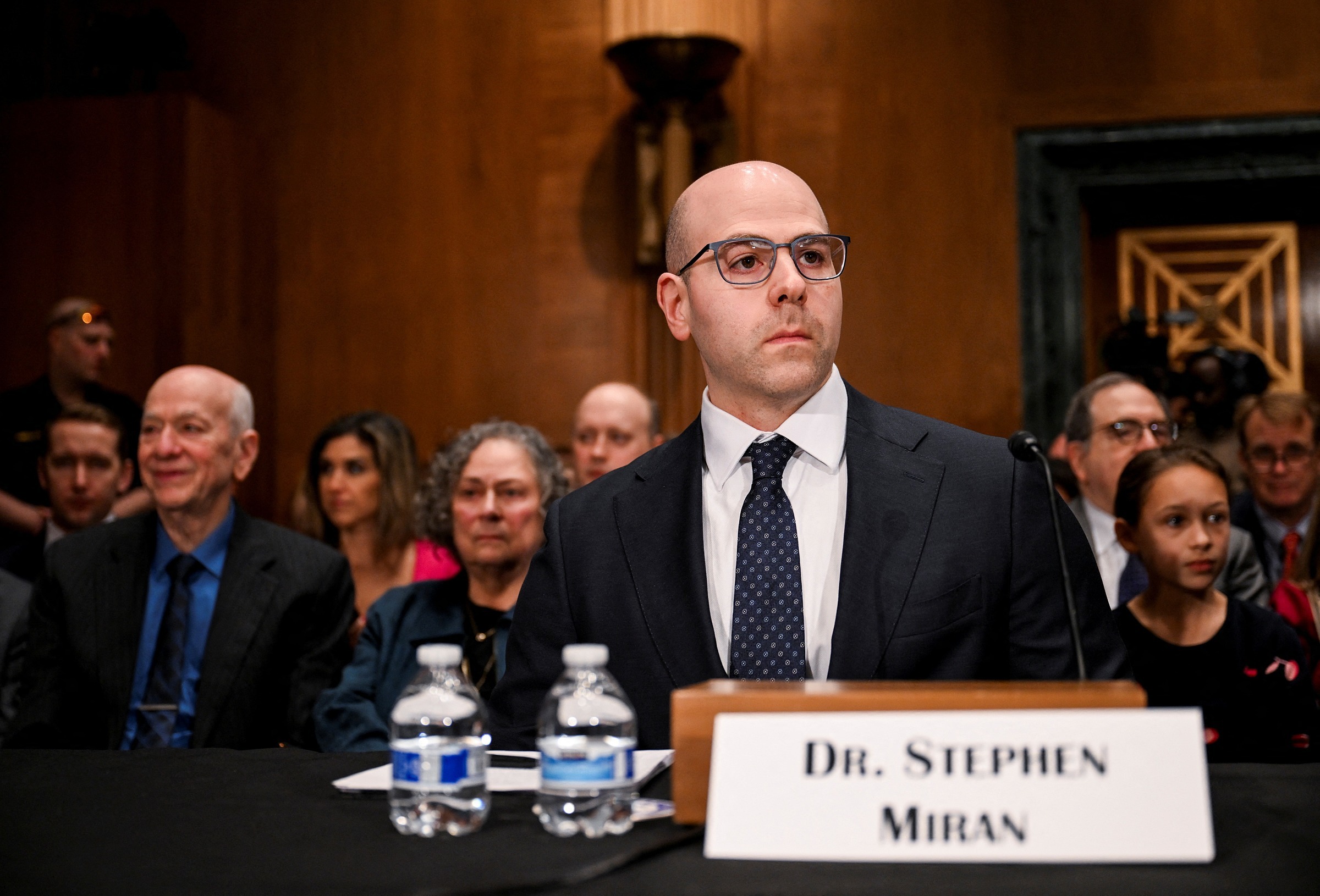Stephen Miran will temporarily fill the vacancy left by Adriana Kugler, who unexpectedly resigned last month. The Senate confirmed Miran during a session on 15/9.
Miran currently serves as chairman of the White House Council of Economic Advisers. He will retain this position but take unpaid leave while working at the Fed.
 |
Chairman of the Council of Economic Advisers Stephen Miran. Photo: Reuters |
Chairman of the Council of Economic Advisers Stephen Miran. Photo: Reuters
Miran's confirmation increases former President Donald Trump's influence at the Fed. The Board of Governors is the Fed's highest leadership body, composed of seven members responsible for setting monetary policy, banking supervision, and national financial stability. Trump nominated Miran for this position in August, shortly after Kugler's resignation.
The approval process was faster than usual. While typically taking several months, Miran's confirmation took only about six weeks.
The Fed's upcoming meeting is scheduled for 16-17/9. Investors are almost certain the central bank will cut interest rates by another 25 basis points (0.25%) due to recent weakening in the labor market.
However, analysts predict Miran might even oppose this and advocate for a larger cut. Since the beginning of his term, Trump has been urging the Fed to aggressively lower rates by several percentage points.
Miran has long supported Trump's import tariff policies. He asserts that these tariffs do not cause inflation and that other Trump policies, such as stricter immigration, will also reduce overall price pressure by decreasing housing demand.
The Fed has not adjusted interest rates since the beginning of the year. Within the central bank, two members, Michelle Bowman and Christopher Waller (both appointed by Trump during his first term), have previously supported rate cuts. In the July meeting, both voted against keeping rates unchanged. This marked the first time in over 30 years that two members of the Board of Governors dissented from a policy decision.
Analysts predict they will again oppose a 25 basis point cut this time, advocating for a 50 basis point reduction. If this happens, it would be the first time since 1988 that three Fed governors have dissented from a policy decision.
Ha Thu (Reuters)












